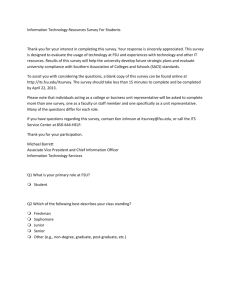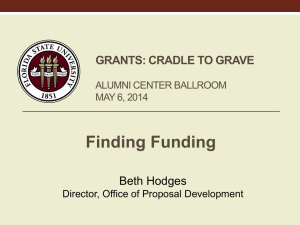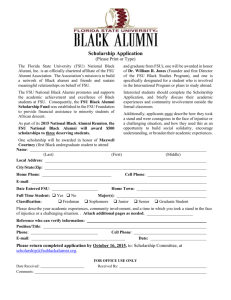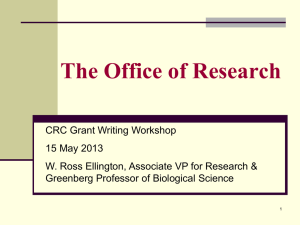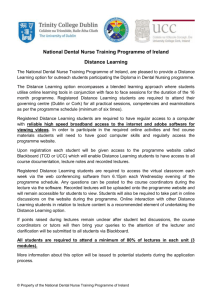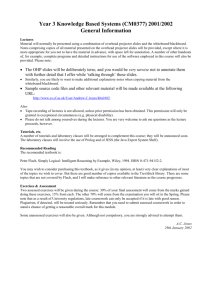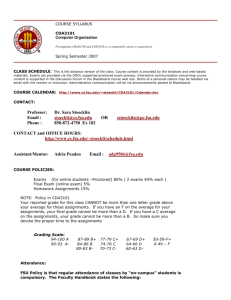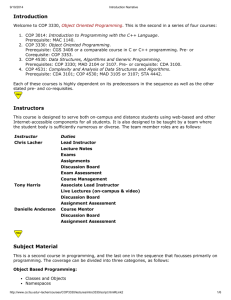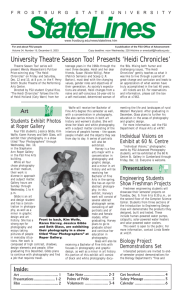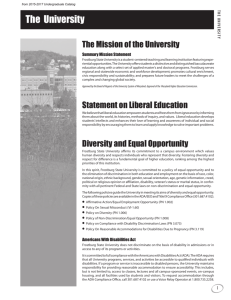109 SYLLABUS - Faculty.frostburg
advertisement
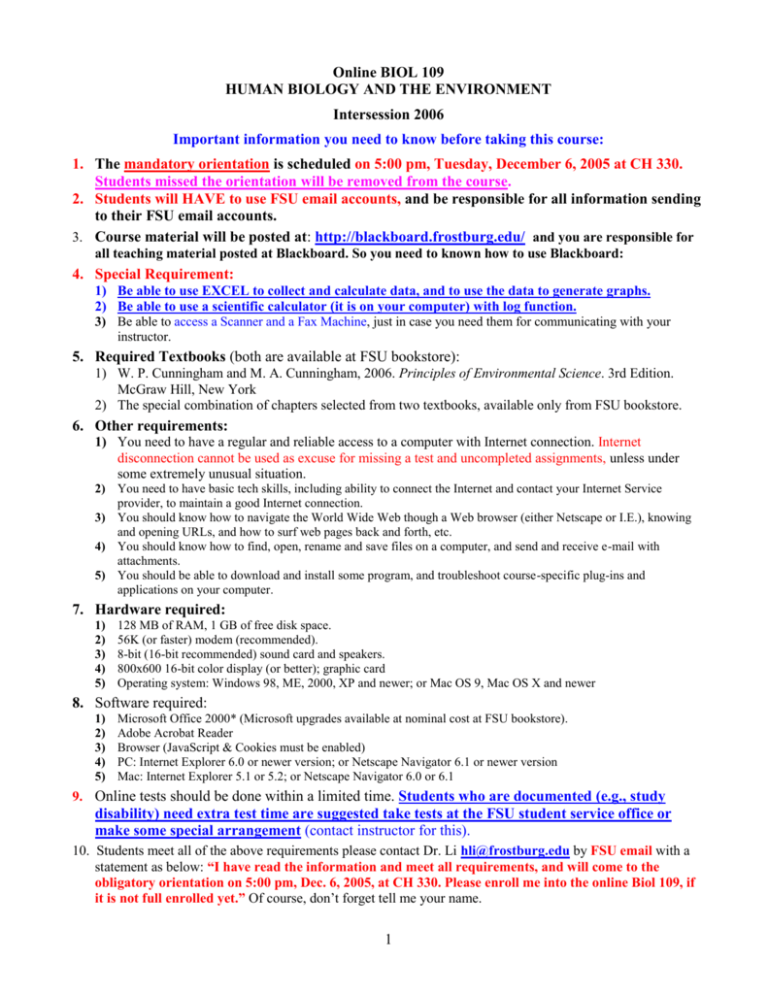
Online BIOL 109 HUMAN BIOLOGY AND THE ENVIRONMENT Intersession 2006 Important information you need to know before taking this course: 1. The mandatory orientation is scheduled on 5:00 pm, Tuesday, December 6, 2005 at CH 330. Students missed the orientation will be removed from the course. 2. Students will HAVE to use FSU email accounts, and be responsible for all information sending to their FSU email accounts. 3. Course material will be posted at: http://blackboard.frostburg.edu/ and you are responsible for all teaching material posted at Blackboard. So you need to known how to use Blackboard: 4. Special Requirement: 1) Be able to use EXCEL to collect and calculate data, and to use the data to generate graphs. 2) Be able to use a scientific calculator (it is on your computer) with log function. 3) Be able to access a Scanner and a Fax Machine, just in case you need them for communicating with your instructor. 5. Required Textbooks (both are available at FSU bookstore): 1) W. P. Cunningham and M. A. Cunningham, 2006. Principles of Environmental Science. 3rd Edition. McGraw Hill, New York 2) The special combination of chapters selected from two textbooks, available only from FSU bookstore. 6. Other requirements: 1) You need to have a regular and reliable access to a computer with Internet connection. Internet disconnection cannot be used as excuse for missing a test and uncompleted assignments, unless under some extremely unusual situation. 2) You need to have basic tech skills, including ability to connect the Internet and contact your Internet Service provider, to maintain a good Internet connection. 3) You should know how to navigate the World Wide Web though a Web browser (either Netscape or I.E.), knowing and opening URLs, and how to surf web pages back and forth, etc. 4) You should know how to find, open, rename and save files on a computer, and send and receive e-mail with attachments. 5) You should be able to download and install some program, and troubleshoot course-specific plug-ins and applications on your computer. 7. Hardware required: 1) 2) 3) 4) 5) 128 MB of RAM, 1 GB of free disk space. 56K (or faster) modem (recommended). 8-bit (16-bit recommended) sound card and speakers. 800x600 16-bit color display (or better); graphic card Operating system: Windows 98, ME, 2000, XP and newer; or Mac OS 9, Mac OS X and newer 8. Software required: 1) 2) 3) 4) 5) Microsoft Office 2000* (Microsoft upgrades available at nominal cost at FSU bookstore). Adobe Acrobat Reader Browser (JavaScript & Cookies must be enabled) PC: Internet Explorer 6.0 or newer version; or Netscape Navigator 6.1 or newer version Mac: Internet Explorer 5.1 or 5.2; or Netscape Navigator 6.0 or 6.1 9. Online tests should be done within a limited time. Students who are documented (e.g., study disability) need extra test time are suggested take tests at the FSU student service office or make some special arrangement (contact instructor for this). 10. Students meet all of the above requirements please contact Dr. Li hli@frostburg.edu by FSU email with a statement as below: “I have read the information and meet all requirements, and will come to the obligatory orientation on 5:00 pm, Dec. 6, 2005, at CH 330. Please enroll me into the online Biol 109, if it is not full enrolled yet.” Of course, don’t forget tell me your name. 1 Online BIOL 109 HUMAN BIOLOGY AND THE ENVIRONMENT Intersession 2006 COURSE SYLLABUS Instructor: Dr. Hongqi Li Office: 306 Compton Science Center Office Phone: 301-687-4168 (leave message if I am not available). Communication: Mainly by email at least twice or more times each day to answer your questions. URL: http://faculty.frostburg.edu/biol/hli/ E-mail: hli@frostburg.edu Required Textbooks (both are available at FSU bookstore): 1) W. P. Cunningham and M. A. Cunningham, 2006. Principles of Environmental Science. 3rd Edition. McGraw Hill, New York 2) The special combination of chapters selected from two textbooks, available only from FSU bookstore. The course is hosted at: http://blackboard.frostburg.edu/ 1. You are responsible for all announcements, materials, and assignments posted at the Blackboard 2. Uncompleted assignments & untaken tests after the scheduled time will be graded as zero. 3. You must use your FSU email address to communicate with FSU instructors. Course Description: Study of the human species with emphasis on the interdependence of humans, other forms of life, and the physical environment. Total 24 lectures and 10 labs, 4 credits. Not for majors or minors. Course Objectives: This course is designed to teach students about humans, the environment and the issues created by their association. Objectives include: 1) Understanding scientific thinking and how to use scientific methods in problem-solving, 2) Understanding basic human biology and how human beings relate to the environment, 3) Understanding how nature works and how we function in nature, 4) Analyzing our impact on the environment and the environment's impact on us, and 5) Understanding resource problems and related social and political issues. Grading Procedures: Two online midterm exams (100 pts on lectures + 25 pts on labs) Online Final exam (175 pts on lectures + 25 pts on labs) 21 online quizzes for lectures 9 online labs Orientation (3 assignments) Total = 250 points = 200 points = 178 points = 210 points = 12 Points 850 points Grading will be: A = 90-100%, B = 80-89%, C = 70-79%, D = 60-69%, F < 60%. Note: CS (Continued Study Required) or NC (No Credit) grades will not be considered for this course. Academic Dishonesty: The University policy of academic dishonesty as published in the student handbook, The Pathfinder, states, "Academic dishonesty is defined to include any form of cheating and/or plagiarism. Cheating includes, but is not limited to, such acts as stealing or altering testing instruments; falsifying the identity of persons for any academic purpose; offering, GIVING OR RECEIVING unauthorized assistance on an examination, quiz or other written or oral material in a course; or falsifying information on any type of academic record. Plagiarism is the presentation of written or oral material in a manner which conceals the true source of documentary material; or the presentation of materials which uses hypotheses, conclusions, evidence, data, or the like, in a way that the student appears to have done work which he/she did not, in fact, do. In cases involving academic dishonesty, a failing grade or a grade of zero (0) for either an assignment and/or a course may be administered. Students who are expelled or suspended for reasons of academic dishonesty are not admissible to other institutions within the University System of Maryland. Suspension or expulsion for academic dishonesty is noted on a student's academic transcript." This statement will be enforced without exception, and the student should become familiar with it. If cheating or plagiarism is encountered, the instructor may administer a grade of zero, an F in the class or file a charge with the judicial board depending on the severity of the offense. 2 Attention: The above statement will be enforced without exception, and the student should become familiar with it. If cheating (e.g., a test is found with more than 90% of wrong answers identical with another student’s test) or plagiarism (e.g., more than 5% content of a lab paper is found identical with a paper from any other source, including quotation) is encountered the instructor may administer a grade of zero, an F in the class or file a charge with the judicial board depending on the severity of the violation. A New Class Schedule, 2006 Intersession Date 12/6 1/3 1/4 1/5 1/6 1/7 Weekday Tuesday Tuesday Wednesday Thursday Friday Saturday 1/8 1/9 1/10 1/11 1/12 1/13 1/14 1/15 1/16 1/17 1/18 1/19 1/20 1/21 1/22 1/23 1/24 1/25 1/26 Sunday Monday Tuesday Wednesday Thursday Friday Saturday Sunday Monday Tuesday Wednesday Thursday Friday Saturday Sunday Monday Tuesday Wednesday Thursday Activities Orientation: How to use blackboard, course syllabus, and labs .CH 330, 5-7 pm 1. Scientific Method (should be studied before you work on Lab 1) 2. Basics of Biology. Lab 1 Due (30 points) 3. Cells and cell division Lab 2: Genetics, Blood types 4. Human Life Cycle and Tissues Lab 2 Due (25 points) 5. Organ Systems (I): Digestive, urinary, Lab 3: Human Physiology cardiovascular, lymphatic, & respiratory 6. Organ Systems (II): The rest systems. Lab 3 Due (25 points) Exam 1 Covers lectures 1-6 and Syllabus 7. Introduction to Environmental Science. Lab 4: Photosynthesis and Respiration 8. Energy, Photosynthesis and Respiration Lab 5: Biodiversity 9. Ecosystem and material Cycles Lab 5 Due (25 points) 10. Ecology of Community. 11. Population Dynamics Lab 6: Survivorship Lab 6 Due (15 pts) 12. Human Populations Lab 4 Due (30 points) Exam 2 Covers lectures 7-12 13. Biodiversity, Nutrient, & Food sources Lab 7: Diet Nutrients survey 14. Biomes, Restoration, and Management 15. Environmental Geology Lab 8: Air Pollution 16. Atmosphere and Climate 17. Air Pollution Lab 8 Due (20 points) 18. Water Use and Management Lab 9: Sewage Treatment Plant online. Lab 9 Due (20 points) 19. Water Pollution 20. Conventional Energy 21. Sustainable Energy Final Exam Covers lectures 13-21 All lectures, online quizzes, labs, lab quiz, and tests can be done ahead of the schedule. Note: Some online material may be updated/changed, and the updates will be announced in the Blackboard. 3
